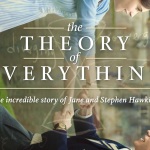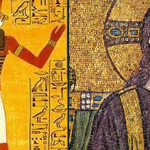Who Has the Burden of Proof When Discussing God?
by Jimmy Akin
Filed under The Existence of God
The subject of who has the burden of proof frequently comes up in discussions between Christians and atheists.
Both parties sometimes try to put the burden of proof on the other.
At times, Christians claim that atheists have the burden of proof.
At times, atheists claim that Christians have the burden of proof.
Somewhat surprisingly, both parties are sometimes right . . . and sometimes wrong.
The Burden of Proof
The basic idea of the “burden of proof” is that a particular party has an obligation to provide proof of a claim that is being disputed.
This principle is applied in a variety of settings—in courtrooms, in science, in philosophical discussion, and in debates.
When used rightly, it can help keep discussions on track.
When used wrongly, it can cause discussions to descend into squabbles that cause the discussion to go off track.
So let’s look at the ways the burden of proof is assigned and see how it applies to the existence of God.
The Legal Burden of Proof
In legal settings, the burden of proof is linked to the presumption of innocence.
In a criminal case, the defendant is presumed innocent until the prosecution shows otherwise. The prosecutor thus has the legal burden of proof.
The reasons for this are practical. History shows that if the defendant is not presumed innocent then, when the machinery of the state is pitted against an individual, tyranny results.
Many modern legal systems thus incorporate the presumption of innocence.
In fact, the Universal Declaration of Human Rights, article 11, states:
Everyone charged with a penal offence has the right to be presumed innocent until proved guilty according to law in a public trial at which he has had all the guarantees necessary for his defense.
This does not apply on Cardassia, however, where they apparently like tyranny.
The Scientific Burden of Proof
In the sciences, the burden of proof falls to the one proposing a hypothesis.
It doesn’t matter what the hypothesis is:
- If you want to propose that Particle X exists, the burden of proof falls to you.
- If you want to propose that Particle X does not exist, the burden again falls to you.
Either way, in science the person proposing a hypothesis needs to provide evidence for it by using the scientific method (i.e., making a prediction based on the hypothesis and then seeing whether the prediction is fulfilled when a test is run).
Only by doing this can the hypothesis be scientifically established (to the extent that anything can ever be scientifically established).
Scientific Proof of God’s Existence/Non-Existence?
If someone wanted to claim that the existence of God is scientifically provable then he would need to formulate a testable prediction based on the hypothesis that God exists and then run the test and see if the prediction is fulfilled.
In the same way, if someone wanted to claim that the non-existence of God is scientifically provable then he would need to formulate the same kind of testable prediction, run the test, and see if the prediction is fulfilled.
Either way, the test would need to be well-designed, replicable, etc., etc., for the matter to be considered scientifically proved.
There are difficulties involved in running tests involving a Being who is not detectable by the senses and who may or may not choose to act in ways that are detectable by the senses.
These difficulties have convinced many that it is not easy to use the scientific method to either prove or disprove the existence of God. Some hold that it is simply impossible.
Our point, though, is that the burden of proof falls equally on the one wanting to assert and the one wanting to deny the existence of God.
In science, you shoulder the burden of proof to sustain your hypothesis, whatever it happens to be.
The Philosophical Burden of Proof
Most discussions about the existence of God are not scientific ones. They may involve observations about the universe and things that science studies (e.g., order, design, etc.).
However, they also involve premises that cannot be verified scientifically.
Many of them involve premises of a philosophical nature, and so the discussion of God’s existence is often regarded as a philosophical matter rather than a scientific one.
Who holds the burden of proof in philosophy?
As in science, it’s whoever is making a claim.
It doesn’t matter whether you’re:
- asserting the existence or non-existence of Plato’s Forms,
- claiming the truth or falsity of a particular view of epistemology, or
- asserting that moral judgments are just expressions of emotion or something else.
The principle remains the same: The burden is on you to argue for your own claims.
Philosophy may use a different method than science, but its assignation of the burden of proof is the same.
Why Discussions Go Wrong
If the existence of God can be treated (largely) as a philosophical matter, and if the burden of proof is clear in philosophy, why do discussions on the subject go wrong?
Because we’re human, and we often don’t keep things clearly in focus.
One way we do this is when we are making a claim but then try to shift the burden of proof to our opponent.
For example, if a person is asserting the existence of God to an atheist, he might at some point say, “Well, there’s no evidence that he doesn’t exist!”
Or, if a person is asserting that God does not exist to a theist, he might at some point say, “Well, there’s no proof that he does exist!”
In both cases, a logical fallacy known as the argument from ignorance (Latin, argumentum ad ignorantiam) is being committed.
A Natural Temptation
It’s easy to see why the parties in these discussions would want to do this: If you can relieve yourself of the burden of proof then that makes your job in the discussion vastly easier.
It’s thus a natural temptation for people—whatever their view—to try to shift the burden of proof to others.
And it’s a temptation that we need to resist in ourselves.
It doesn’t help the discussion, and it leaves us open to a very plausible rejoinder . . .
“Hey, Wait a Minute!”
If we try to shift the burden of proof onto a person we are trying to convince of our view, it is entirely appropriate for them to say, “Hey! Wait a minute! You are the one who wants me to change my view! It’s up to you to give me reasons why I should do that.”
Thus, if a Christian is trying to convince an atheist that he should change his view of the existence of God, the Christian needs to give the atheist reasons to do so.
In the same way, if an atheist is trying to convince a Christian that he should change his view, the atheist needs to give the Christian reasons to do so.
There is no innately privileged position on this question, just as there is no innately privileged position on any other.
“X is true” and “X is false” are logically equivalent propositions.
If you want to convince a person of one, it’s up to you to give reasons why he should believe it.
Who’s Right and When
Atheists are thus right to say that Christians shoulder the burden of proof when Christians are trying to convince others of their view of God’s existence.
Similarly, Christians are right to say that atheists shoulder the burden of proof when atheists is trying to convince others of their view of God’s existence.
Neither atheists nor Christians are right to say that the other always has the burden of proof.
They don’t.
It depends on who’s trying to do the convincing.
How Heavy the Burden?
It’s also worth noting that how heavy the burden of proof is varies.
How much evidence a person needs to change his view will depend on how committed he is to it.
A person highly committed to the existence or non-existence of God will naturally demand more proof than a person who is only weakly committed.
It will also depend on the situation in which the person finds himself and how urgent he feels the question to be.
A person who is 21 and who thinks himself immortal may not feel the urgency to decide the issue that a person who is 95 and is acutely aware of his mortality.
- The 21-year old thus might feel more comfortable remaining undecided and might want more evidence before deciding one way or the other.
- A 95-year old, by contrast, might be willing to settle for much less evidence, one way or the other, to resolve the tension generated by the approach of death.
The point is that the weight of the burden of proof can vary depending on the circumstances, inclinations, and commitments of the person who is being asked to change his view.
No Magical Level of Evidence
There is no magical level of evidence where something can be considered objectively proved.
At least, there is no such level that we have access to (certainly not outside of pure mathematics or logic, and often not even then).
In our discussions, we are not trying to convince objects but subjects—other people—and how much proof they need to change their view will vary from person to person.
Giving them the proof that they feel they need may or may not be within our powers, but we should recognize the subjective dimension of the burden of proof.
Remembering that can help us avoid frustration and keep the discussion productive.
More to Come?
The question of the burden of proof is related to a number of other discussions that occur in these waters:
- Occam’s Razor
- Russell’s Teapot
- Pascal’s Wager
- Inertia in Belief
- Extraordinary claims and extraordinary evidence
- Evidence of absence and absence of evidence
- And more!
Hopefully, I’ll be able to treat some of these in future posts.
For now, what do you think?
What Now?
If you like the information I've presented here, you should join my Secret Information Club.
If you're not familiar with it, the Secret Information Club is a free service that I operate by email.
I send out information on a variety of fascinating topics connected with the Catholic faith.
In fact, the very first thing you’ll get if you sign up is information about what Pope Benedict said about the book of Revelation.
He has a lot of interesting things to say!
If you’d like to find out what they are, just sign up at www.SecretInfoClub.com or use this handy sign-up form:
Just email me at jimmy@secretinfoclub.com if you have any difficulty.
Related Posts
Note: Our goal is to cultivate serious and respectful dialogue. While it's OK to disagree—even encouraged!—any snarky, offensive, or off-topic comments will be deleted. Before commenting please read the Commenting Rules and Tips. If you're having trouble commenting, read the Commenting Instructions.













